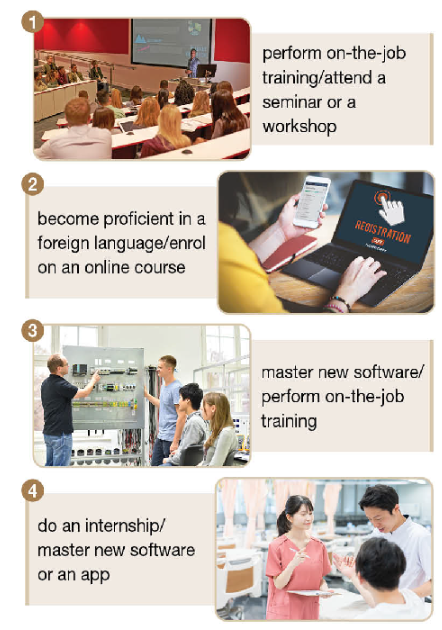Giải SGK, SBT Unit 8. Lifelong learning Bright
Giải SGK, SBT Unit 8 Bright
a) Fill in each gap with bookkeeping, critical, collaboration, adaptability, literacy or proficiency. Then listen and check.
(Điền vào mỗi chỗ trống với bookkeeping, critical, collaboration, adaptability, literacy hoặc proficiency. Sau đó nghe và kiểm tra.)
HARD SKILLS VS. SOFT SKILLS
An important part of lifelong learning and professional development is acquiring useful skills. There are two main types of skills that one can learn: hard skills and soft skills.
Hard skills include technical skills learned through education or hands-on experience. Soft skills include personality traits that people have developed throughout their lives. which explain why people are motivated to do certain things.
|
Hard skills (learned abilities) A. industry certification B. digital _____ C. machine operation D. foreign language _____ E. troubleshooting F. _____ |
Soft skills (people skills) G. _____ thinking H. negotiating I. _____ J. empathy K. _____ and teamwork L. decision-making |
Lifelong learning habits (Thói quen học tập suốt đời)
7. Match the words in the two columns.
(Nối các từ trong hai cột.)
|
1. ___ dedicated 2. ___ high-volume 3. ___ curious 4. ___ proactive 5. ___ have |
a. reader b. mind c. individual d. discipline e. approach |
3. Match the words in the two columns.
(Nối các từ trong hai cột.)
|
1. ___ worth 2. ___ job 3. ___ command 4. ___ reach 5. ___ in |
a. of a language b. depth c. clients d. the effort e. prospects |







